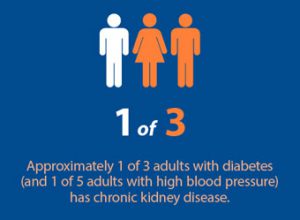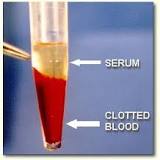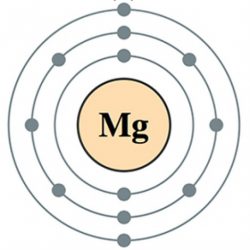 Those with the first signs of kidney problems will nearly always have a magnesium deficiency. But if you do suffer from kidney disease, the medical profession will tell you that you must NOT take magnesium. It is paradoxical that a disease that can be caused by a Mg deficiency cannot be treated with Mg! This doesn’t make sense to me, unless you have complete kidney failure. If your kidneys are working then I don’t know why Mg, under guidance, should not be administered.
Those with the first signs of kidney problems will nearly always have a magnesium deficiency. But if you do suffer from kidney disease, the medical profession will tell you that you must NOT take magnesium. It is paradoxical that a disease that can be caused by a Mg deficiency cannot be treated with Mg! This doesn’t make sense to me, unless you have complete kidney failure. If your kidneys are working then I don’t know why Mg, under guidance, should not be administered.
Why not Magnesium?
The reasoning behind this is most likely that magnesium has to be flushed through the kidneys like any other unused substance not being utilized by the body. Another reason could be that the majority of the medical profession has no idea what Mg does and seem to be oblivious to the fact that without this mineral nutrient, we’d all be dead! A serious deficiency will make you ill and you WILL succumb to all kinds of illnesses.
Why not Calcium?
Mg deficiency is shortening lives and causing untold misery. Why pick on magnesium anyway, why not vilify calcium which is actually toxic when taken to excess. How do you think you get kidney stones? Kidney stones form when urine contains more crystal-forming substances such as calcium, oxalate and uric acid than the fluid in urine can dilute. On the other hand, Mg is completely safe. Accidental overdose, will produce loose stools, because if the body has an excess of Mg, it will excrete it. This is its failsafe!
crystal-forming substances such as calcium, oxalate and uric acid than the fluid in urine can dilute. On the other hand, Mg is completely safe. Accidental overdose, will produce loose stools, because if the body has an excess of Mg, it will excrete it. This is its failsafe!
Mg deficiency = kidney disease
The lack of Mg will actually encourage kidney stones to form, because without it calcium will not be dissolved in the blood and can migrate and calcify in all parts of the body including the kidneys, the brain and the heart and vascular system. It all doesn’t make sense to me. What about the Mg you consume from your foods, have you got to stop eating Mg rich foods too if you have kidney disease?
Mg ignored as a main cause of kidney disease
The main causes of kidney disease include high blood pressure, diabetes, kidney infections, high cholesterol, inflammation of the kidneys known as glomerulonephritis, blockages in the urine flow from kidney stones, enlarged prostate causing a blockage, long term use of pharmaceutical drugs and polycystic kidney disease (an inherited condition). But all these conditions are known symptoms of a Mg deficiency, except perhaps the inherited condition.
 The most common cause: Mg deficiency and Ca excess
The most common cause: Mg deficiency and Ca excess
Although the above causes are common, the most common cause is not mentioned at all when you look at various kidney disease sites on the web. Why is this? The most common cause of high blood pressure is magnesium deficiency and calcium excess. This is why calcium channel blockers (CCBs) are used for hypertension. If calcium was not a problem, why prescribe these CCBs?
Control your blood pressure!
Those having kidney problems will be told to keep their blood pressure under control. But magnesium is not allowed to be taken, so how on earth are you going to keep your hypertension stable. The only way, without magnesium is by pharmaceutical drugs. What does that do? Apart from giving you nasty side effects, it will drain your body even further, of the little magnesium you have and can cause….kidney disease!
Protein in the urine
One of the first tests to be done to check for kidney problems will be levels of protein in the urine. Higher than normal levels is one of the first signs of kidney disease. If you have diabetes, you will be more at risk. What is one of the symptoms of diabetes? You’ve got it, low magnesium levels.
 Allopathic options = drugs
Allopathic options = drugs
So what do you do? You are not ‘allowed’ to take magnesium and this in turn will raise your blood sugar levels as your magnesium levels get lower. If your doctor diagnoses kidney disease he will prescribe pharmaceutical drugs to keep your blood pressure in check and hopefully slow the onset of diabetes. Which drugs? Probably diuretics which remove excess water and sodium, this can lead to dehydration. Dehydration causes the body to hold onto water by constricting the blood vessels. Constricted blood vessels actually increases blood pressure!
What’s wrong with preventative treatments?
Preventative treatment in the allopathic medical fraternity seems to be unheard of. It’s  drugs all the way with perhaps, if you’re lucky, a little advice about losing weight and changing your life style. While you’re getting this advice, you’re doctor will likely be writing out a prescription for drugs which have untold side effects, some of which are worse than the original condition, as a reader of mine can corroborate*.
drugs all the way with perhaps, if you’re lucky, a little advice about losing weight and changing your life style. While you’re getting this advice, you’re doctor will likely be writing out a prescription for drugs which have untold side effects, some of which are worse than the original condition, as a reader of mine can corroborate*.
A story from the Mg bible.
There is a little anecdote in Dr Carolyn Dean’s must read book ‘The Magnesium Miracle’ which talks about a well known magnesium researcher who asked a colleague, who was a kidney specialist, to test some of his kidney patients for their magnesium levels. Both the serum test as well as the ionized magnesium test was done on 100 of his kidney disease patients, all with various types of kidney conditions. When the results came in, it was telling. Those with chronic kidney disease had both the highest levels of serum magnesium but the lowest levels of ionized magnesium. The ionized magnesium is that which is used by the body at the cellular level. Mg in serum is only about 1% of the body’s total magnesium which is found in the extracellular fluids. Total Mg in an average adult should amount to around 25 grams¹, so this 1% would amount to about 250 milligrams.
 Explanation of serum Mg
Explanation of serum Mg
Let me explain about these different levels. Less than 1% of our body’s total Mg can be measured in blood serum. Most of our Mg is found in bones – around 60% and inside muscle and other cells – around 40%. If magnesium drops in the extracellular fluids, there’s a danger of a heart event. Thus, the body will do its best to ensure that the amount of Mg in blood fluids is stable at all times, at the expense of other levels in the body. So, if the daily magnesium intake is not sufficient to keep the blood level normal, magnesium will be moved from the muscle and bone cells to compensate, despite bodywide levels already being deficient.
This means, even if you are deficient in this mineral, your body will keep your blood serum magnesium levels up. So the antiquated blood serum test has no value in showing your intracellular Mg levels. In fact, it is positively dangerous because it can give false information and consequently the wrong diagnosis can result, with the wrong treatment and possibly improper use of prescription drugs.
Back to the story.
Going back to the story, the kidney patients were then given a magnesium liquid and their ionized magnesium levels increased. Their symptoms improved and kidney tests showed increased function.
 The magnesium researcher tried to encourage the kidney specialist to publish the findings as the result showed a substantial improvement in kidney function and magnesium levels. But the specialist said he could not do it and when asked why he said “because everyone knows that magnesium can’t be taken in kidney disease!”
The magnesium researcher tried to encourage the kidney specialist to publish the findings as the result showed a substantial improvement in kidney function and magnesium levels. But the specialist said he could not do it and when asked why he said “because everyone knows that magnesium can’t be taken in kidney disease!”
Prime example of dogma
This is a prime example of the dogma that exists in the medical profession. Once something is laid down, it seems to be laid down in stone. When tests come back with serum levels normal or elevated, doctors consider the patient to be well endowed with magnesium, despite the fact that a normal or high serum magnesium does not reflect bodywide magnesium levels.
Mg norms set too low?
As for the higher than normal serum levels, this too is suspect. Many magnesium experts consider that normal serum levels should be set in a higher bracket than they are now, which would reflect the seriousness of the population’s magnesium deficiency today. So those showing a high reading for serum magnesium could possibly be showing what should be classed as normal, indicating the body is doing its job by moving intracellular Mg into extracellular blood serum to protect the heart. Those showing a normal reading could actually be reflecting a very serious deficiency.
Is it a fear of Mg, or ignorance?
 It definitely appears that doctors are fearful of magnesium. Perhaps they need to become more au fait with exactly what Mg does for the whole body and what goes wrong when it is deficient. They usually do nothing when serum Mg readings appear normal as they nearly always do, causing a Mg deficiency to be dismissed. Until more accurate Mg tests are used as standard, much of the population will be presumed to have normal Mg levels. What a travesty and how the pharmaceutical companies must be rubbing their hands with glee with all those drugs prescribed to all those patients suffering from debilitating diseases that could be treated with just a cheap and vital mineral.
It definitely appears that doctors are fearful of magnesium. Perhaps they need to become more au fait with exactly what Mg does for the whole body and what goes wrong when it is deficient. They usually do nothing when serum Mg readings appear normal as they nearly always do, causing a Mg deficiency to be dismissed. Until more accurate Mg tests are used as standard, much of the population will be presumed to have normal Mg levels. What a travesty and how the pharmaceutical companies must be rubbing their hands with glee with all those drugs prescribed to all those patients suffering from debilitating diseases that could be treated with just a cheap and vital mineral.
*A lady who took control
I had a comment from one of my readers concerning her health problems, of which she had many. All of them were symptoms of a Mg deficiency. Obviously a very brave lady, she explained how she had come off all her meds. She told her doctor what she’d done after the event, but she had been sensible and came off the drugs slowly so he was not too upset. One of those medications actually caused side effects which developed into Stage 3 kidney disease! She didn’t say which medication but I suspect it could have been diuretics which can cause dehydration.
Taking her health into her own hands, she started introducing a Mg supplement and slowly her health has improved. Her blood pressure has gone down and she doesn’t even notice her arrhythmia now, which is brilliant. She is off all her prescription medications and feels more energised. Her headaches and infections are diminishing. Well done to her.
 How about you!
How about you!
Don’t forget, you can research your own condition/s and educate yourself on your best course of treatment. Then, as long as your doctor is not sensitive to being educated by his patient, he/she can work with you and together you can improve your health, hopefully without drugs. It’s your life, your health, your body, educate yourself!
Mg will increase your energy
The first thing you will notice with a Mg supplement is more energy and a change of mood. If you are depressed or anxious, this will start to lift and you will find your quality of sleep will improve and any insomnia will be a thing of the past. It does take time though for all your other conditions to abate but if you persevere, you will be a different person within a few weeks and your health will improve as the months go by.
For me, I take 600mg of Mg Chloride solution, putting the 4 x 150mg doses into a litre of water and taking it throughout the day. Don’t take your dose/s in one go. Spread them throughout the day. If not, it will go straight through you and you will lose much of its benefit. Start slowly and build your doses up gradually. The side bar of this site has my recommendations for Mg supplements. For those with digestive problems which often present as constipation, a Mg citrate powder is your best supplement to take initially. If you have a child who is constipated this is a great solution as you can adjust the dose to  suit. After your digestion improves move over to a Mg Chloride solution which is 100% bioavailable, such as Dr Dean’s ReMag. For those living in the UK, Ionic Magnesium is a good choice. You can also use a topical Mg Chloride such as Ancient Minerals which is absorbed into the skin.
suit. After your digestion improves move over to a Mg Chloride solution which is 100% bioavailable, such as Dr Dean’s ReMag. For those living in the UK, Ionic Magnesium is a good choice. You can also use a topical Mg Chloride such as Ancient Minerals which is absorbed into the skin.
- Nature’s Building Blocks – An A-Z guide to the elements by John Emsley (Dept of Chemistry, University of Cambridge, UK)
Spread the word!


Hi Chessie, this web pages is amassing, fully in details the benefit of taking magnesium and the deficiency of magnesium can be a symptom of a kidney failure. And beside magnesium, explanation on the excessive of calcium can effect the health also proved vital. Overall this web gives information and function like medical science.
Thanks Andy for your positive comments and I sincerely hope you will find information on this website to benefit your health. Ches
Hi Ches! Thank you for sharing all this information on Mg benefits. It’s really great that you help people get aware of the benefits of taking Mg. I’m 33 but I have already experienced problems due to insufficient Mg intake. I started taking Mg but it took some time until I found the brand that worked for me. I’ll keep an eye on your website- it really provides interesting health information!
Hi Veronica and thanks for reading the post. I’m pleased to learn you are now taking a Mg supplement. Which brand are you using by the way? I sincerely hope you will return and read some more about this amazing and vital mineral. Ches
WOWWW what a great article!. And what an amazing website. I’m such a fan of magnesium supplements! I apply oil on my skin, put it in baths, do footbaths etc. It’s very relaxing and yet very healthy as well. I strongly believe in everything you write. So misleading the bloodtest! Keep on writing this stuff. We need it!
Thanks NicoA for your positive comments about my site. Hopefully you will find it informative for the future. I’m very pleased you take your magnesium regularly, I only wish more knew about the amazing benefits of this vital mineral. Ches